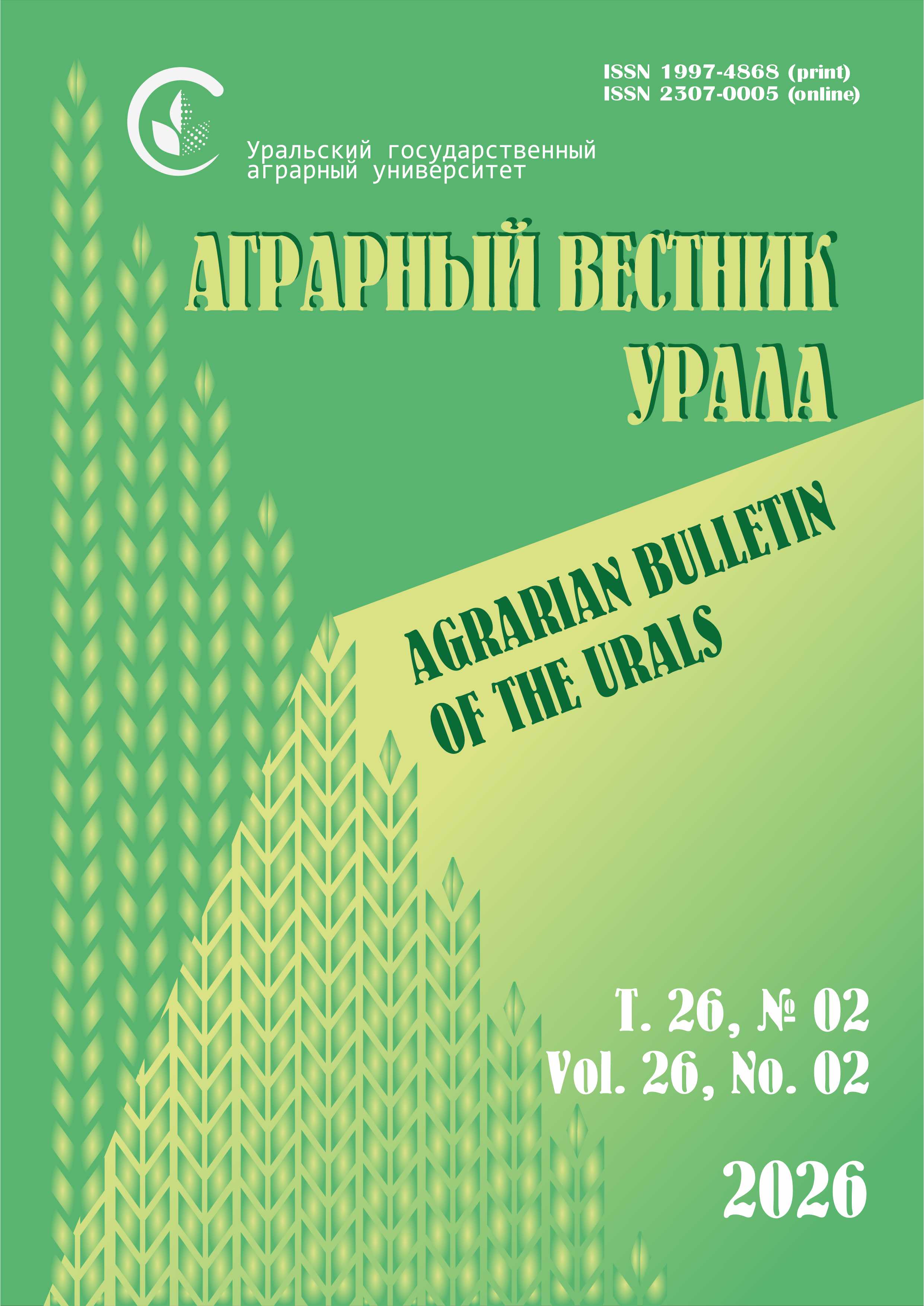O. V. Prushchak1, I. M. Kublin1 , A. A. Voronov2 , O. A. Rushchitskaya3
1 Saratov State Technical University named after Yuri Gagarin, Saratov, Russia
2Emperor Alexander I St. Petersburg State Transport University, Saint Petersburg, Russia
3 Ural State Agrarian University, Ekaterinburg, Russia;
E-mail: This email address is being protected from spambots. You need JavaScript enabled to view it.
Volume 25 No. 1
Date of paper submission: 28.10.2024, date of review: 02.12.2024, date of acceptance: 17.12.2024.
Published: 01/31/2025
Abstract. The purpose of the study is to substantiate the directions of agri-food policy aimed at activating import substitution processes in all elements of the food chain and involving all forms of management, especially small forms of agribusiness, in the formation of food resources. Methods. The methodological basis of the research was a set of the following scientific methods: dialectical analysis, abstract logical, hypotic-deductive and functionaltarget approach, general scientific and special methods of synthesis, analysis, statistics, expert assessments, a systematic approach, forecasting, including legislative and regulatory acts of the Russian Federation, financial, economic and comparative empirical data, the authors’ own research. Results. The assessment of Russia’s food security in the context of self-sufficiency, the level of economic and physical accessibility of food has been carried out. An assessment of Russia’s food security in the context of self-sufficiency, the level of economic and physical availability of food was carried out. The problems and conditions for ensuring food security in Russia are studied: sanctions pressure, high dependence on imports of seed and genetic material, vaccines, machinery and equipment for agriculture and food production. In the context of the concept of sustainable development, the functions of small forms of Russian agribusiness are considered: economic (formation of food resources and ensuring food security), social (sustainable development of rural areas and improving the quality of life), environmental (involvement of unused farmland in circulation, production of environmentally friendly products). Scientific novelty lies in the substantiation of the priorities of the state agri-food policy: the formation of new food chains based on import substitution and the development of a regional network of processing enterprises, support for domestic demand, and assistance in the development of consumer and agricultural cooperation. This will contribute to the involvement of small forms of agribusiness in ensuring food independence of Russia.
Keywords: sustainable development, food security, food self-sufficiency, economic accessibility of food, physical accessibility of food, state support, small forms of agribusiness
For citation: Prushchak O. V., Kublin I. M., Voronov A. A., Rushchitskaya O. A. Contribution of small forms of agribusiness to food security in Russia. Agrarian Bulletin of the Urals. 2025; 25 (01): 150‒162. DOI: https://doi.org/10.32417/1997-4868-2025-25-01-150-162 (In Russ.)
Download the full text of the article












